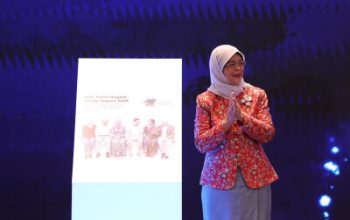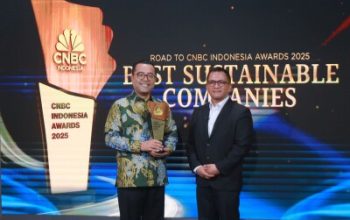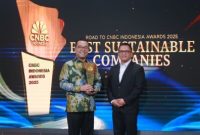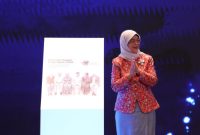Connectivity, data, and AI will change the way we live, work and operate in society
HONG KONG SAR – 8 November 2021 -Trend Micro Incorporated (TYO: 4704; TSE: 4704), a global cybersecurity leader, today released a visionary new report and video dramatization articulating how the world might look at the start of the next decade — and how the security sector might respond to evolving cybercrime innovation.
By 2030, connectivity will impact every aspect of daily life, on both the physical and psychological levels. Malicious threat actors will evolve to use and abuse technological innovation – as they always do. Click here to learn more about Project 2030.
“Project 2030 is not a definitive vision of what will be, but a thought-provoking take on what could be — detailing a future that is plausible based on current technology and trends,” said Rik Ferguson, vice president of security for Trend Micro. “We hope this possible future will spark a debate within the security industry and wider society. Only by carefully anticipating future scenarios can we offer governments, businesses, and individuals a way to prepare for the cyber challenges of the coming decade.”
The report itself looks at the world in 2030 through the eyes of a fictional citizen, a business, and a government. It offers a detailed analysis of evolving cyber threats and how these might impact security stakeholders.
Among the predictions are:
- AI tools democratize cybercrime on a whole new scale to individuals with no technical skill
- Attacks cause chaos with supply chains and physical harm to humans through their cyber-implants
- Social engineering and misinformation become more visceral and harder to ignore when delivered via ubiquitous Heads Up Displays (HUDs)
- Massive IoT (MIoT) environments attract sabotage and extortion attacks targeting manufacturing, logistics, transportation, healthcare, education, retail, and the home environment
- AI-powered obfuscation makes attribution virtually impossible, pushing the security industry’s focus towards incident response and IAM at the edge
- 5G and 6G connectivity everywhere drive more sophisticated and precise attacks
- “Everything as a Service” turns cloud providers into hugely lucrative targets for cyber-attackers
- Grey markets emerge for those that want tools to confound workplace monitoring
- Techno-nationalism becomes a key geostrategic tool of some of the world’s most powerful nations, with the gulf between them and the have-nots widening further
“The exponential growth of modern technology has brought abundant future possibilities, along with cybersecurity challenges,” said Dr. Victoria Baines, cybersecurity futurist. “These scenarios and their associated threats will require changes to the business and regulation of cybersecurity. The cybersecurity industry must evolve both technology and training to prepare for a future in which everything is connected and at risk.”
A successor to Trend Micro’s acclaimed 2012 report, Project 2020, the new paper was compiled from open-source research, vendor threat landscape reports, scientific abstracts, patents, an invitation-only online survey, and a CISO poll. The video dramatization of the report is meant to be an engaging, entertaining way to visualize the future and enable organizations to think about how they will need to adapt to new realities.
Trend Micro, a global cybersecurity leader, helps make the world safe for exchanging digital information. Fueled by decades of security expertise, global threat research, and continuous innovation, Trend Micro’s cybersecurity platform protects hundreds of thousands of organizations and millions of individuals across clouds, networks, devices, and endpoints. As a leader in cloud and enterprise cybersecurity, the platform delivers a powerful range of advanced threat defense techniques optimized for environments like AWS, Microsoft, and Google, and central visibility for better, faster detection and response. With 7,000 employees across 65 countries, Trend Micro enables organizations to simplify and secure their connected world.
















